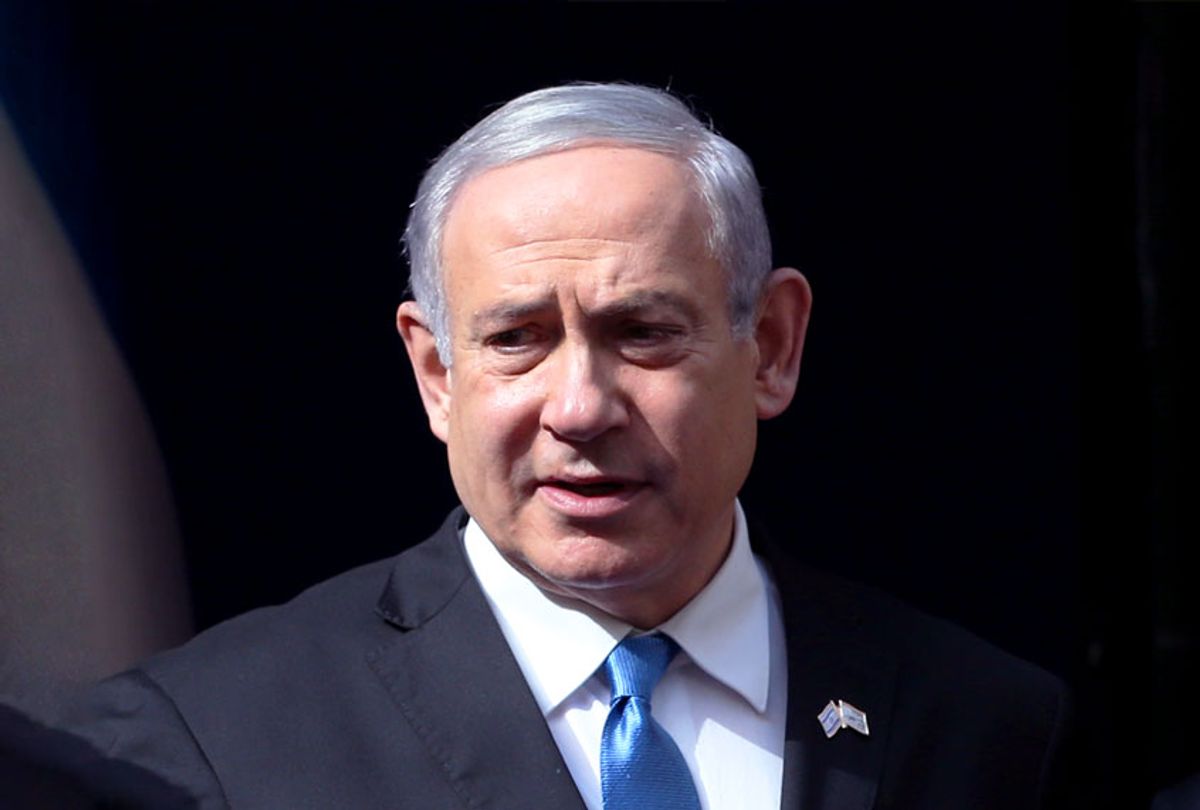Israeli Attorney-General Avichai Mandelblit filed an indictment against Prime Minister Benjamin Netanyahu Tuesday in Jerusalem District Court, complicating the incumbent's path to another term in office as he faces charge of bribery, fraud and breach of trust.
Though Mandelblit first announced the indictment on Nov. 21, he was unable to file it until a request for immunity made by Netanyahu was resolved, according to the Jerusalem Post. Netanyahu asked the Knesset, his nation's parliament, to grant him immunity from prosecution in the three cases earlier this month. The prime minister said the proposed bill was meant to prevent "political indictments whose purpose is to impair the will of the people," claiming "that's what happened in my case."
In response to Netanyahu's remarks, Benny Gantz, his chief rival in the upcoming national elections, said: "Today, it is clear what we are fighting for. Netanyahu knows he's guilty."
Like President Donald Trump in the U.S., Netanyahu has long argued that people trying to hold him legally accountable are part of the "fake news" and have a liberal agenda. Prosecutors have accused the prime minister of trading favors worth hundreds of millions of dollars to Israeli media leaders in return for positive news coverage and illicit gifts.
Case 4000, in which Netanyahu is accused of pushing for policies that would help Shaul Elovitch's Bezeq company in return for positive coverage from Walla!, an Israeli internet company, could prove the most challenging for the prime minister. "This is the hardest case for Netanyahu, as he faces accusations by two close former aides who turned state witnesses, Shlomo Filber and Nir Hefetz," the Jerusalem Post reported Tuesday.
As Israel's prime minister since 2009, Netanyahu has struggled to hold on to the political power he has held without break. He also served as prime minister from 1996 to 1999.
In Israeli politics, prime ministers are elected by a majority of the members of the Knesset, which has 120 members. This means that a minimum of 61 Knesset members have to support a candidate for prime minister in order for he or she to hold office.
During an election in April, Netanyahu and his allies picked up 65 seats compared to 55 seats for Gantz, the Blue and White Party candidate. Yet five supporters from ultra-Orthodox Jewish parties defected over a dispute about whether ultra-Orthodox men were exempted from military service, which is mandatory for all Israelis.
During a second election in September, the two parties virtually broke even, with the Blue and White Party winning 32 seats compared to 31 seats for the Likud Party. Because neither party was able to create a governing coalition, a third round of elections was scheduled for this year.
And even Netanyahu's leadership of the Likud Party did not go unchallenged. Last month, challenger Gideon Sa'ar opposed Netanyahu to be the standard-bearer of the Likud Party, a sign of the prime minister's weakening grip on power. Netanyahu ultimately defeated Sa'ar by walking away with more than 70 percent of the vote.
"Huge victory! I thank the Likud members for the trust, the support and the love," Netanyahu tweeted after polls had closed, according to a translation by CNN. "With God's help and with your help, I will lead the Likud to a great victory in the coming (March) election and we'll continue leading the state of Israel to unprecedented achievements."
Netanyhu withdrew the request for immunity in the lead up to a Knesset vote. He became the first sitting prime minister to be indicted Tuesday.



Shares